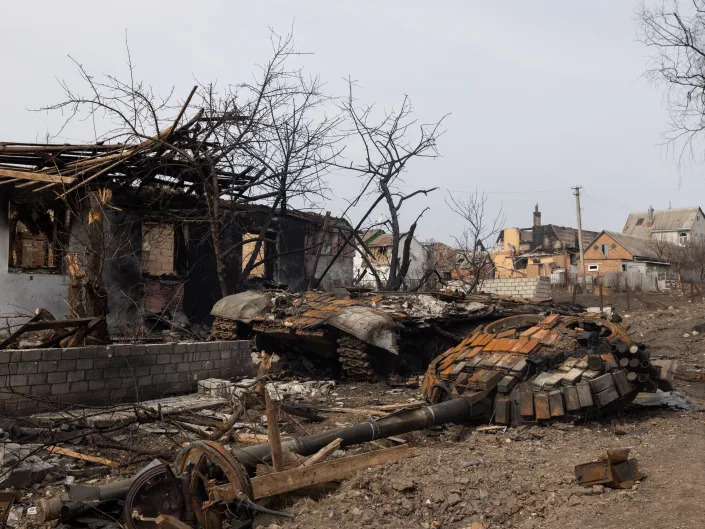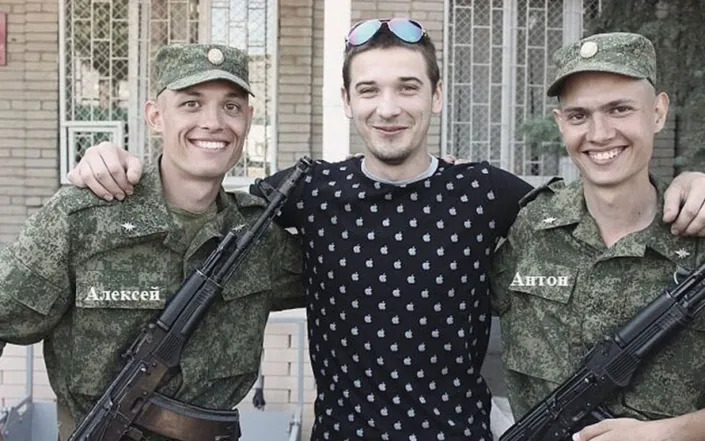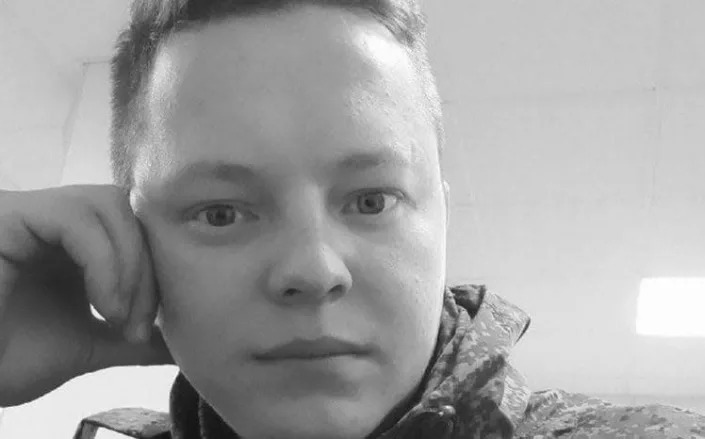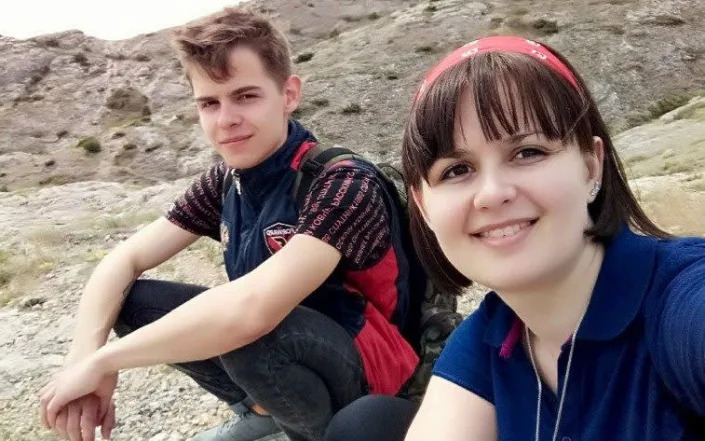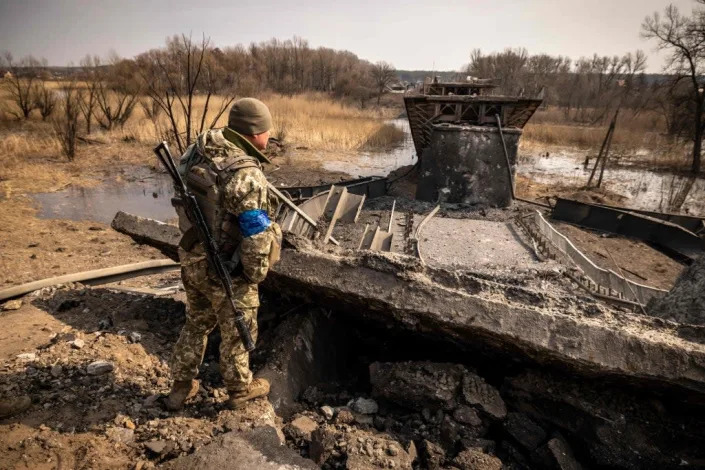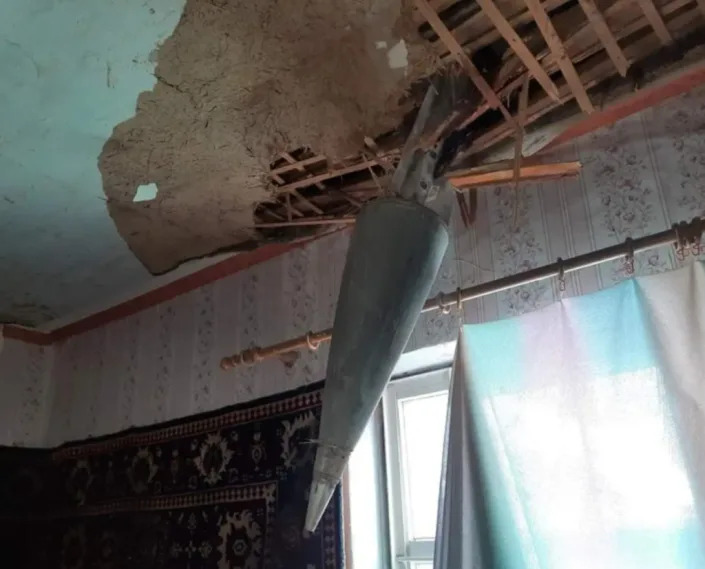Daily Beast
Russian Families Are Disowning Each Other Over Putin’s War
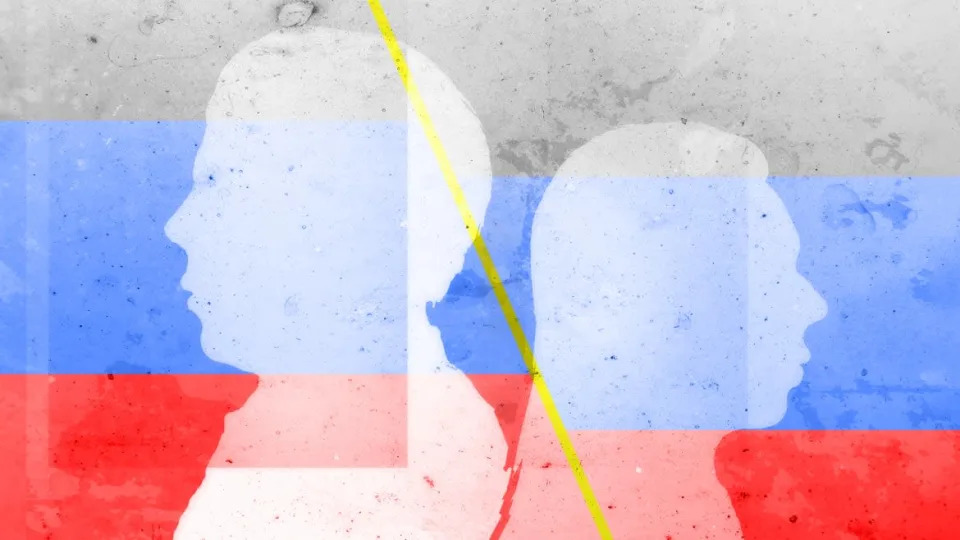
As a mixed-race man living in Moscow, life for 30-year-old film producer and actor Jean-Michel Shcherbak was not always easy. But through all of the hardships he has faced in his life, there was one person he always thought he could lean on: his 63-year-old mother, Marina, a linguistic scientist and staunch Orthodox Christian. She raised him alone as a single mom, taught him to be smart, to work hard, and to avoid conflicts. She always reassured him that he would never have to worry about his future—because she would always be there for him.
But his loving mother is also a passionate supporter of Russian President Vladimir Putin. Back in 2018, she did not speak to her son for two weeks after he refused to vote for Putin in Russia’s presidential elections. Eventually, they reconciled. That is… until Shcherbak took a stand against Vladimir Putin’s war in Ukraine.
Shortly after the Russian army was deployed to Ukraine last month, Shcherbak wrote in a post on Instagram, that he felt “scared, hurt and ashamed” of the Russian offensive in an open letter to his many friends in Ukraine. His statement deeply damaged his relationship with his mother, who, after seeing the post, called him “a traitor” and cut all ties with him.
Marina, Scherbak says, is convinced that her son is a supporter of what she refers to as the “fascist powers” in Ukraine.
“My mother wrote to me that ‘there would be no traitors in her family,’ that she does not want to have anything to do with ‘a russophobe’ like me and that our life paths now led in different directions,” Shcherbak told The Daily Beast in a phone interview from Germany. He left Moscow in late February for a work trip, but has plans to eventually return to Russia. “I have no doubts that my mother loves me and that she wants to save me, to protect me. But she is convinced that somebody has brainwashed me.”
Hundreds of people expressed their support for Shcherbak when he shared his mother’s decision to denounce him as her son to his 25,000 Instagram followers. Many admitted they had experienced similar issues with their parents. “My mother is just the same,” actress Anastasia Lyovina wrote in a comment. “That is what our parents are like. To them only America is bad and VVP [Vladimir Vladimirovich Putin] is a saint,” another follower wrote. “Our mothers have been zombified by propaganda, I am not discussing anything with my mother,” read another comment.
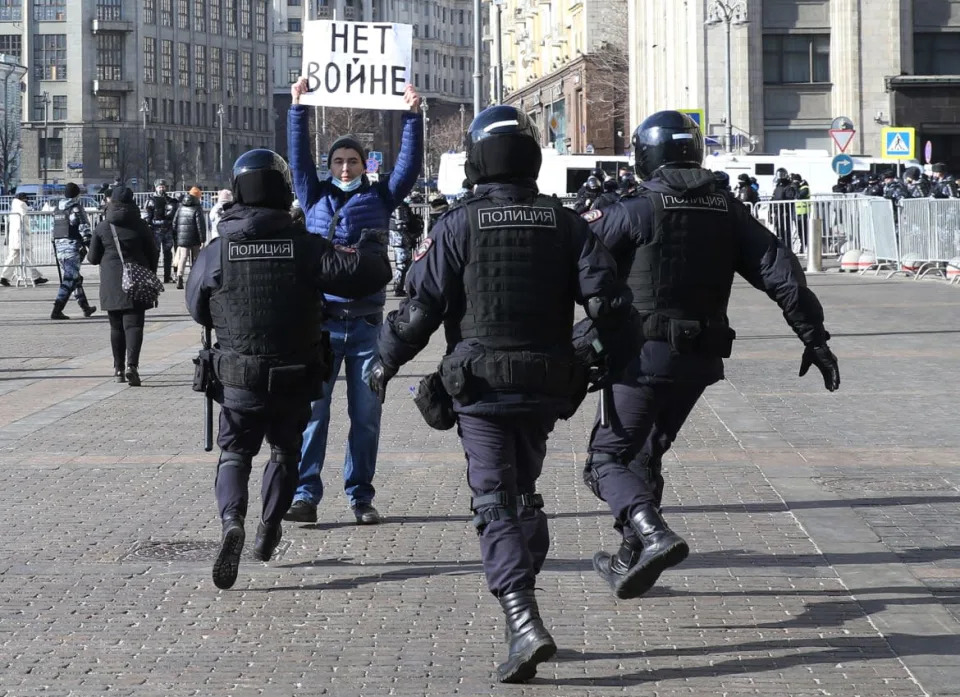
There is a wide spectrum of political views in modern Russia, but according to a social study released by the independent Russian research organization Levada Center on Thursday, most Russians still disagree with the use of the word “war” to describe what is happening in Ukraine, choosing instead to believe that Putin’s so-called “special operation” is legitimate and justified.
Putin’s Soldiers Caught on Tape Lamenting Losses and Blasting His Army of ‘Stupid Morons’
“The majority of respondents support the actions of the Russian armed forces in Ukraine, naming ‘protection of the Russian-speaking population’ and ‘border security’ among the motives for their support,” read the report. “Those who are against explain their attitude by the fact that violence and death of people are unacceptable.”
Even the most loving and tight knit Russian families are having painful fights over the war in Ukraine. Anna Zekria, a 42-year-old photo curator, told The Daily Beast she has always had healthy discussions with her 74-year-old father about political issues in Russia in the past.
But this time around, things were drastically different. “My father has always respected my political views, I am not even sure what happened. It was a sudden change,” Zekriya told The Daily Beast on Thursday. “My father is trying to convince me and my brother that geopolitics are more complicated than we know, that ‘Putin had no choice but to invade Ukraine,’ that ‘Nazis run Ukraine.’”
Meanwhile, Ukrainian and Russian public officials appear to have made some progress in peace talks for the first time since the war began on Feb. 24. Putin aide Vladimir Medinsky declared this week that Russia would “drastically reduce” and de-escalate its combat operations in some regions of Ukraine.
The war hawks of Russia have been raging over this most recent development. One of the Kremlin’s most prominent TV propagandists, Vladimir Solovyev, said that Medinsky’s words were “insane” and “demoralizing.” Putin’s faithful ally, Chechen leader Ramzan Kadyrov, called on Russian soldiers to “finish what we started” in Ukraine and “enter” the capital of Kyiv.
“The authorities have created a monster which is bigger than they expected and this monster hates the peace talks, so that the Kremlin’s bots have to calm this monster down,” Zekria said. “It is just scary to see how friends and family members demand to ‘cleanse’ Ukraine, win the war, otherwise all our soldiers have died for nothing, they say.”

Looking back at the events of the past month, Shcherbak said he felt “empty” about how his relationship with his mother fell apart. On Wednesday, he told The Daily Beast that he was struggling to understand Marina. How could a proud single mother—someone who had brought him up to be brave, to have a critical mind, and to always avoid violence—somehow support the atrocities being committed in Ukraine?
“My mother is deeply convinced that the West is eager to see Russia fall apart, just like the USSR—she misses Soviet times very much,” Shcherbak said. “I am sorry I did not have a chance to travel more around the world with my mother, that I did not have a chance to show her France before she told me: ‘You are not my son any longer.’”




 People walk through Red Square after sunset in Moscow, Russia, on March 3, 2019, with the St. Basil’s left, and the Spasskaya Tower, second right, in the background. Russian technology workers are fleeing the country by the tens of thousands as the economy goes into a tailspin under pressure from international sanctions. For some countries, Russia’s loss is being seen as their potential gain and an opportunity to bring fresh expertise to their own high-tech industries. (AP Photo/Alexander Zemlianichenko, File)
People walk through Red Square after sunset in Moscow, Russia, on March 3, 2019, with the St. Basil’s left, and the Spasskaya Tower, second right, in the background. Russian technology workers are fleeing the country by the tens of thousands as the economy goes into a tailspin under pressure from international sanctions. For some countries, Russia’s loss is being seen as their potential gain and an opportunity to bring fresh expertise to their own high-tech industries. (AP Photo/Alexander Zemlianichenko, File) The Moscow City skyscrapers are seen during a sunset in Moscow, Russia, on July 15, 2018. Russian technology workers are fleeing the country by the tens of thousands as the economy goes into a tailspin under pressure from international sanctions. For some countries, Russia’s loss is being seen as their potential gain and an opportunity to bring fresh expertise to their own high-tech industries. (AP Photo/Alexander Zemlianichenko, File)
The Moscow City skyscrapers are seen during a sunset in Moscow, Russia, on July 15, 2018. Russian technology workers are fleeing the country by the tens of thousands as the economy goes into a tailspin under pressure from international sanctions. For some countries, Russia’s loss is being seen as their potential gain and an opportunity to bring fresh expertise to their own high-tech industries. (AP Photo/Alexander Zemlianichenko, File)